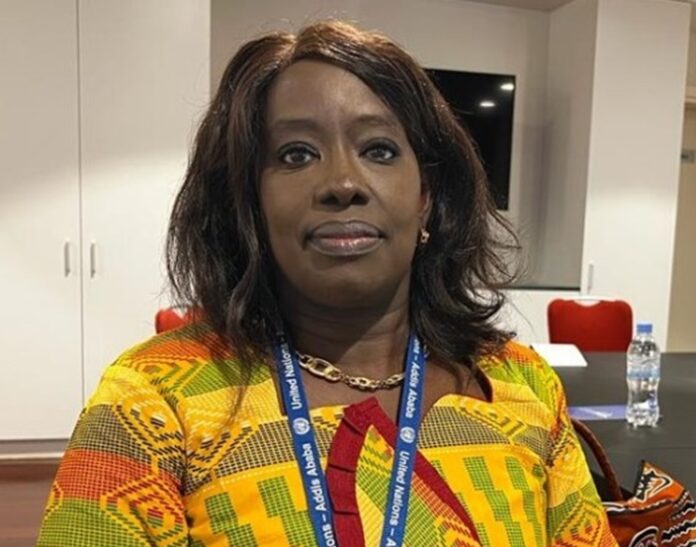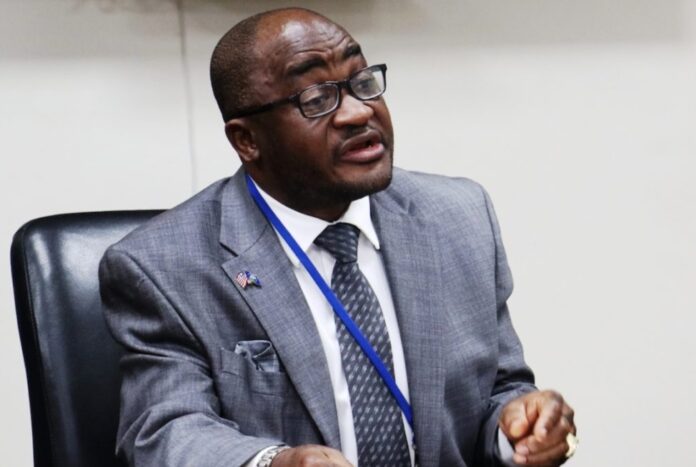By Jacob N.B. Parley
Introduction
My colleague, Augustus D.R. Bortue of the Heritage Newspaper, and I formed part of a two-day Re-union Meeting of members of the Network of Economic Journalists in West Africa (NEJWA) in the Togolese Capital, Lome, from February 15-16, 2022.
The gathering, graced by more than twenty-five members of NEJWA, was in line with ongoing efforts by the UN Economic Commission for Africa Sub-regional Office for West Africa (UNECA-SRO/WA) to strengthen its partnership with partners, including key policymakers, development partners, and the media in making its programs and activities visible.
The forum also offered an opportunity for the UNEC/SROWA to discuss with the media about upcoming ECA flagship events, including the Fifty-fourth Session of the Commission and Conference of African Ministers of Finance, Planning and Economic Development, scheduled for March 2022, under the theme: “Financing Africa’s Recovery: A New Beginning. Indeed, realizing the African Continental Free Trade Area (AfCFTA) through constructive efforts/collaboration dominated the two-day deliberations.
The Network of Economic Journalists in West Africa was officially established in September 2017 in Dakar, Senegal.

Since its establishment, the Network has been making efforts to contribute to the economic and social development of ECOWAS member countries through broader dissemination of the ECA’s knowledge-related products, among other important issues.
The AfCFTA
Africa’s quest to overcome the numerous challenges being experienced from time to time clearly remains unbending, based on what I see as the constructive efforts being made since the end of the Millennium Development Goals (MDGs) in 2015, without much being achieved by the Continent, especially Sub-Saharan Africa.
Challenges that continue to plague the African Continent range from poor infrastructure, poverty, and disease to bad governance, etc. However, it appears that finding solutions to these obstacles is gradually receiving considerable volume of emphasis as leaders of the Continent seem to be no longer prepared to dash their citizens’ happiness into the valley of uncertainty, increased frustration, and hopelessness, as they have been making strides to take a cue from other global ideas directed toward addressing some of these challenges by interlocking them with development strategies and patterns that suit the Continent’s needs and aspirations.
Take for instance, on February 28, 2014; we launched the Common African Position (CAP) in Ndjamena, Chad, after adopting it on January 31, 2014, in Addis Ababa. As we all may know, the Common African Position(CAP), represents a Post 2015 Development Agenda that offers a useful opportunity for Africa to reach a consensus on common challenges, priorities, and aspirations, and to actively participate in the global debate on how to fulfill the MDGs and address emerging issues of development.
Also in place is Agenda 2063, an idea that is highly considered as the master plan that is dedicated to transforming this very resourceful Continent into a global powerhouse for the future of the African people.
It serves as Africa’s strategic framework and is also intended to bring to fruition, Africa’s goal for a new development order that is well-tailored, in the outline of inclusiveness and sustainability.
Undoubtedly, Agenda 2063 draws its birth from the fact that African governments, at the time saw the need to re-think, re-focus, and re-direct keen attention to the Continent’s priorities through a new approach to development. One of the workable ideas born out of all of these efforts over the past few years to promote Value Added Trade (VAT) in Africa is the African Continental Free Trade Area (AfCFTA).
Undoubtedly, the African Continental Free Trade Area is strongly believed to serve as a key driver of economic growth, sustainable development, and industrialization in Africa because this is a brilliant initiative that is aimed at creating a single continental market of about a 1.3billion consumers.
Benefits of the AfCFTA
The United Nations Economic Commission for Africa (UNECA), estimates that the AfCFTA will boost intra-African Trade by 52.3% once non-tariff barriers and import duties are eliminated.
It is also estimated that this worthy idea offers an opportunity to lift 30 million people out of extreme poverty and raise the income of 68million others who live on less $5.50 per day.
Other Projected Dividends
The AfCFTA also talks about lower or no import duties on exports to designated importing African countries.
It promotes value for money as a result of an increased supply of a variety of goods and services on the market.
The idea equally leads to innovation and production of a better quality of products on the basis of diversification and specialization. The points mentioned herein speak to some of the benefits to be accrued by the private sector for countries that will take part in the AfCFTA. As mentioned from the genesis of the article, the AfCFTA, a continental body was established in Addis Ababa, the Ethiopian capital in January 2012, with the all-embracing objective of creating a single continental market for the trading of goods and services, with focus on the free movement of persons and capital as part of efforts to step up economic integration of the African Continent by creating the necessary avenue that leads to a continental customs union.
In accordance with provisions of the AfCFTA, the time earmarked for the commencement of what is considered as free trading is January 2021.
There however appear to be some hurdles, especially cross-border trade in goods and services that seem not to really be on course, as expected one year running.
Based on this well-documented AfCFTA, cross-border trade in goods and services should be in full swing by now. These issues could escort the AfCFTA into another slaughterhouse, rather than lift Africans out of poverty, if not addressed properly, carefully, and with urgency and practical approaches.
Rules of Origin
Establishing the nationalities of many products require careful attention so as to avoid dumping. Under the World Customs Organization’s Harmonized Systems, pertaining to rules of origin and tariff, about 8,000 products are listed, and so experts believe that reaching a threshold on the basis of consensus will ensure that most of these products can be traded under the AfCFTA.
Taking from a January 13, 2022 interview with Africa Renewal, the Secretary General of the AfCFTA Secretariat, Wamkele Mene, puts it blunt: “What is outstanding are automobiles, textiles, clothing and sugar, these account for about 12-15 percent of what we call the tariff book.”
Mr. Mene said concluding negotiations on these issues would go a long way in reaching 100 percent rule of origin convergence. Besides, he strongly believes that traders in Africa deserve an enabling environment, including robust market information and other incentives to influence their businesses.
Many currencies
Africa alone has over 42 currencies and there are equally concerns about how the situation is addressed to deal with the level of constraints it bears on Small and Medium Enterprises (SMEs) in Africa in terms of making them competitive.
I sincerely concur with Mr. Mene and others who see the situation as an issue that makes trade costly and inaccessible to numerous SMEs and emerging entrepreneurs.
Trade Finance Facility
How do we also handle the establishment of a Trade Finance Facility so that the necessary support is provided to SMEs, mainly those that are managed by young people and women. This will require collaboration with commercial banks so that realizing this idea does not become a failure, especially as time flies.
The African Trade Gateway
There are also increasing concerns about launching the African Trade Gateway. This one-stop digital platform containing useful information about rules that relate to customs, market information and trends, products, procedures, and payment transfers needs timely implementation.
Adjustment Facility for the AfCFTA
This pillar, from what I have been following is not intended to address issues of shortfalls in the budget, but to focus on value chains in particular product-based sectors of the economy; agro-processing and textiles.
The Pan-African Payment and Settlement System (PAPSS)
The PAPSS seeks to facilitate payments in local African currencies on a cross-border approach and could save traders from the African Continent somewhere around $5 billion in currency convertibility on an annual basis. Launched on 13th January 2022, the initiative requires collaboration with the media for maximum awareness throughout Africa. Against this backdrop, there is a need for African governments to engage relevant stakeholders and the media to make the idea visible for timely rollout.
The ECA Sub-Regional Office for West Africa has to therefore take these issues into account (AfCFTA pillars and other challenges) if we must realize the operationalization of the AfCFTA in full. To be continued.
About the author:

Jacob Parley is a Liberian Columnist, and Certified Media Trainer and currently serves as Communications Director at the Ministry of Commerce and Industry, Monrovia, Liberia.
He’s a member of the Network of Economic Journalists in West Africa (NEJWA),etc.
Contacts: +231777604576/+231886560455
WhatsApp: +231881336137
Email: jacobtheancestor@yahoo.com







